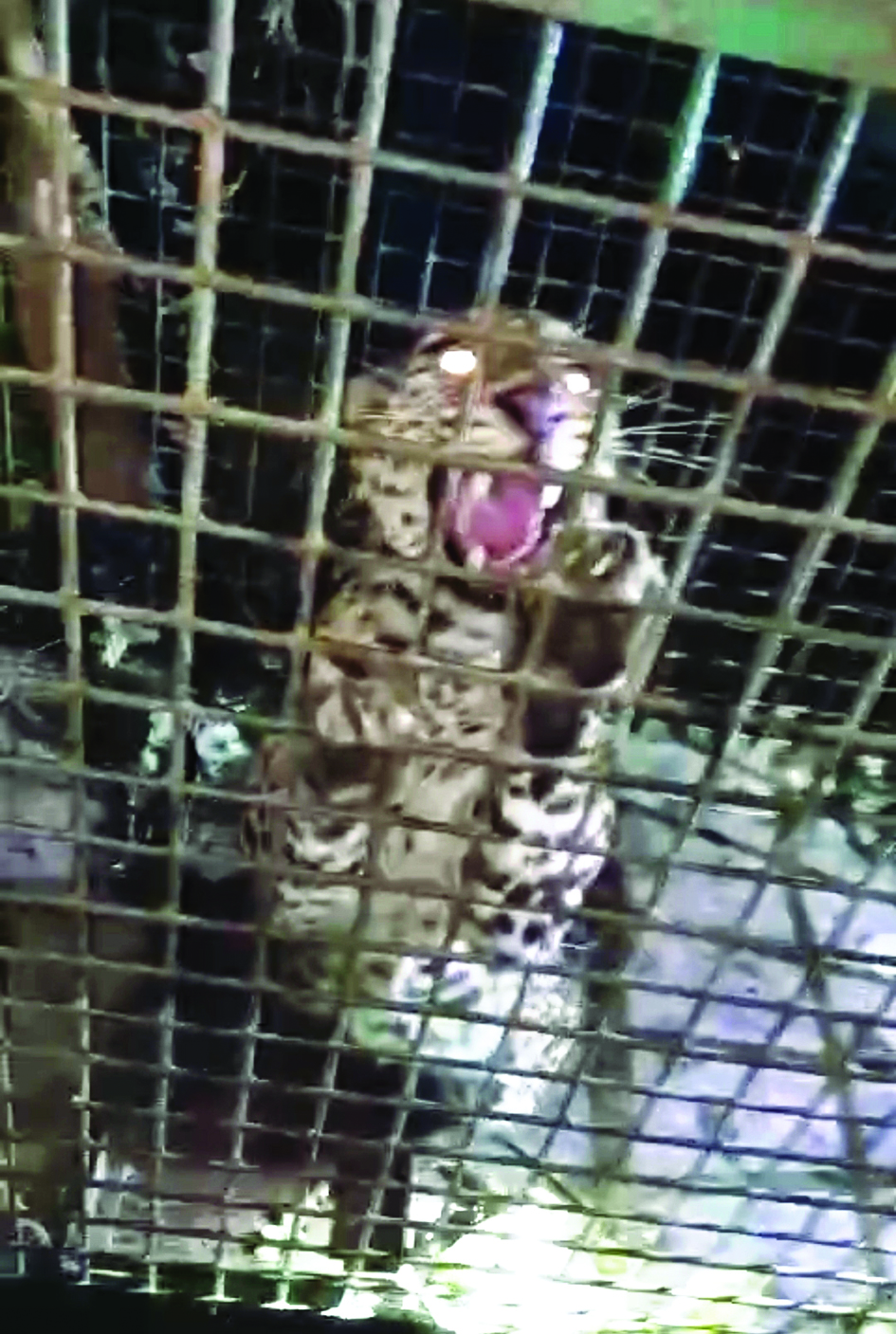In a first in state, microchip to be implanted on caged leopard’s ear

Alipurduar: The Forest department has decided to implant a microchip in the body of a caged leopard and release it in a forest, a long distance away from the place of capture. This decision had earlier been taken by the state Forest department, with this being the first instance in the state.
Navjeet De, the Assistant Wildlife Warden (AWLW) of Jaldapara National Park, stated: “On Saturday night, a six-year-old female leopard was captured in a cage set up by the Forest department at Tasati tea estate. The leopard will be under observation of the veterinarians for a few days to check its teeth and overall health. Only then will it be released. A small microchip will be implanted in the leopard’s body before its release and it will be relocated to a remote location. The leopard will remain under our surveillance in the wild.”
Initially, it has been planned to implant the microchip under the leopard’s ear. The microchip will contain a unique digital code. In future, if the leopard is captured elsewhere, the Forest department will be able to retrieve its history using a digital reader placed under the leopard’s ear.
If the leopard is caught again in a locality, it can be assumed that it has a tendency to stay close to human habitat. This work is currently being carried out as an experiment. Previously, similar microchips were implanted in the bodies of pet Kunki elephants at Jaldapara National Park.
The decision comes after an incident in which an 11-year-old, Dipesh Oraon, was attacked and killed by a leopard in Tasati tea garden on Thursday. Following the incident, the Forest department set up three cages at different ends of the garden. One of these cages successfully captured a leopard on Saturday night.
Forest department officials have confirmed the presence of leopards in various plantations from the Dalgaon area to Tasati tea plantation. The three cages in Tasati tea garden are expected to remain in place for another 15 to 20 days.



